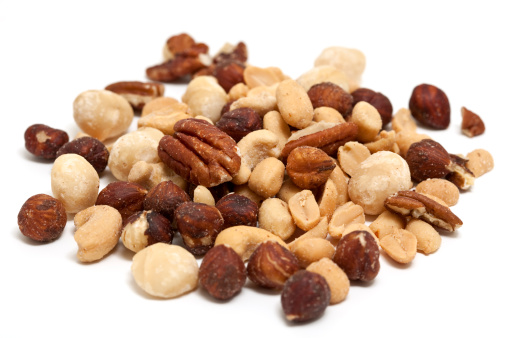Sometimes called polyunsaturated fatty acids (PUFAs), omega-3 fatty acids are well known for many health benefits. Research shows that these fatty acids can protect the brain and even heal it after injury. Although doctors have known for years that these nutrients benefit the brain, omega-3 fatty acids have yet to become standard treatment for brain-injured patients.[1] A new study may change the way hospitals prepare nutrition for those with traumatic brain injuries.

Omega-3 Fatty Acids and Human Health
Omega-3 fatty acids are necessary for good health. Unfortunately, the body cannot produce these acids effectively. We must eat foods rich in these essential nutrients, like salmon, walnuts, kiwi-fruit and flax seed. Omega-3 fatty acids keep the brain’s synapses healthy, allowing them to create the connections for signals to travel in the brain. Without these essential fatty acids, people become prone to neurological and emotional disorders.
Building Blocks of Brain Tissue
Dr. Julian Bailes, a neurosurgeon at West Virginia’s University School of Medicine was head of the school’s trauma center in 2006. He made news when he decided to use essential fatty acids to treat a coal miner who suffered severe brain injuries. By administering high doses of pharmacy-grade omega-3 fatty acids, he was able to help reduce the patient’s brain swelling and promote healing. In an explanation of his reasoning for this regimen, Dr. Bailes said, “How can he rebuild his brain if he doesn’t have the substrate to do it?”[2]
New Study Reveals Hope for Brain Injuries
Since 2006, we have learned much about the health benefits of essential fatty acids. Dr. Bailes recently participated in a clinical study of the affect of omega-3 fatty acids on brain-injured rats. The study is published in the January 2011 Journal of Neurosurgery, showing that fatty acids helped rats heal more quickly after a whiplash-type brain injury. Most of the animals’ brain cells appeared healthy after 30 days of the treatment.[3]
How Fatty Acids Work to Heal the Brain
Dr. Barry Sears, a research scientist and nutritionist, also participated in the study. He explains that two types of omege-3 fatty acids in particular, EPA and DHA, help heal brain injuries. “EPA produces most of the anti-inflammatory properties of omega-3 fatty acids.”[4] DHA is a primary structural element of brain tissue. Together, these nutrients reduce swelling and give the brain the building blocks needed to heal.
The Future of Post Brain Injury Nutrition
A brain injury can cause the body’s metabolism to speed up to 140 percent of its normal rate.[5] For this reason, hospitals administer IV nutrition within 72 hours of admission. Current protocols suggest omega-3 fatty acids might be helpful but do not require them. Hopefully, the study will help change TBI protocols so that hospitals will include omega-3 fatty acids in nutrition regimes for traumatic brain injuries.
Contact Us
If you or someone you love suffered a severe traumatic brain injury, contact our office. Our experienced brain injury attorneys will meet with you free of charge to discuss your case. We will help you learn your rights and decide if you should file a brain injury lawsuit.
[1] http://tbiguidelines.org/glHome.aspx?gl=1
[2] http://articles.chicagotribune.com/2006-05-02/features/0605020266_1_docosahexaenoic-acid-dha-omega-3
[3] http://www.ncbi.nlm.nih.gov/pubmed/20635852
[4] http://blog.zonehealth.com/2011/05/the-fallacy-of-using-dha-alone-for-brain-trauma/



Hi , I Have a father how was run by bus and suffer from hard head trauma a year i wonder if we can treat him with the omega 3 ? and what amount we should give to see improvement? i try to convince doctors neurologist to try but ,i need some one like Dr. Julian Bailes to recommend this . i am relay searching for help pleas help me to fined a Solution to this situation, because my father is working with the physiotherapy and answer to question with the head ,yes and no, we see that he have a chance for behave, and maybe we can improve him at list with the omega tree treatment.